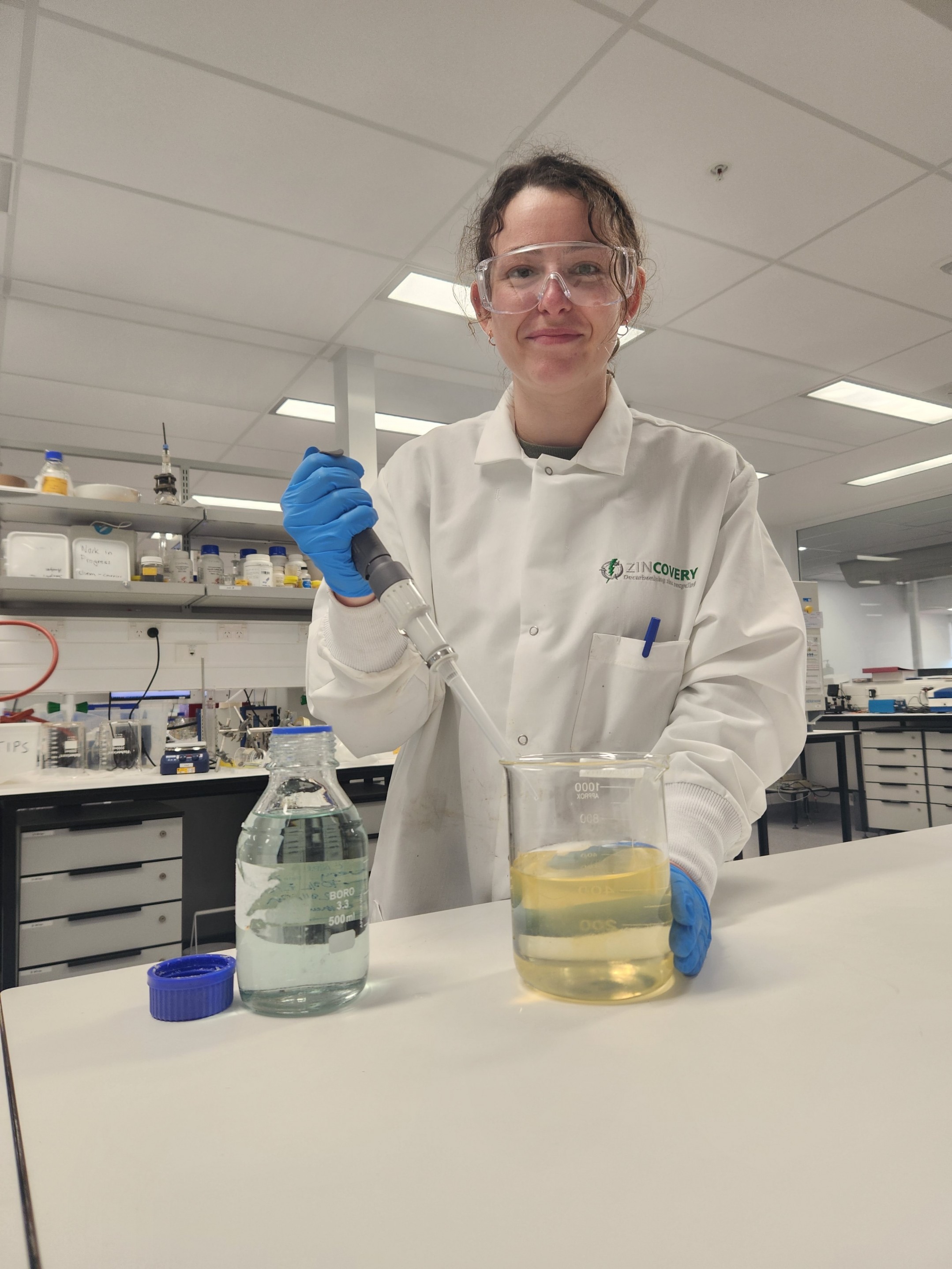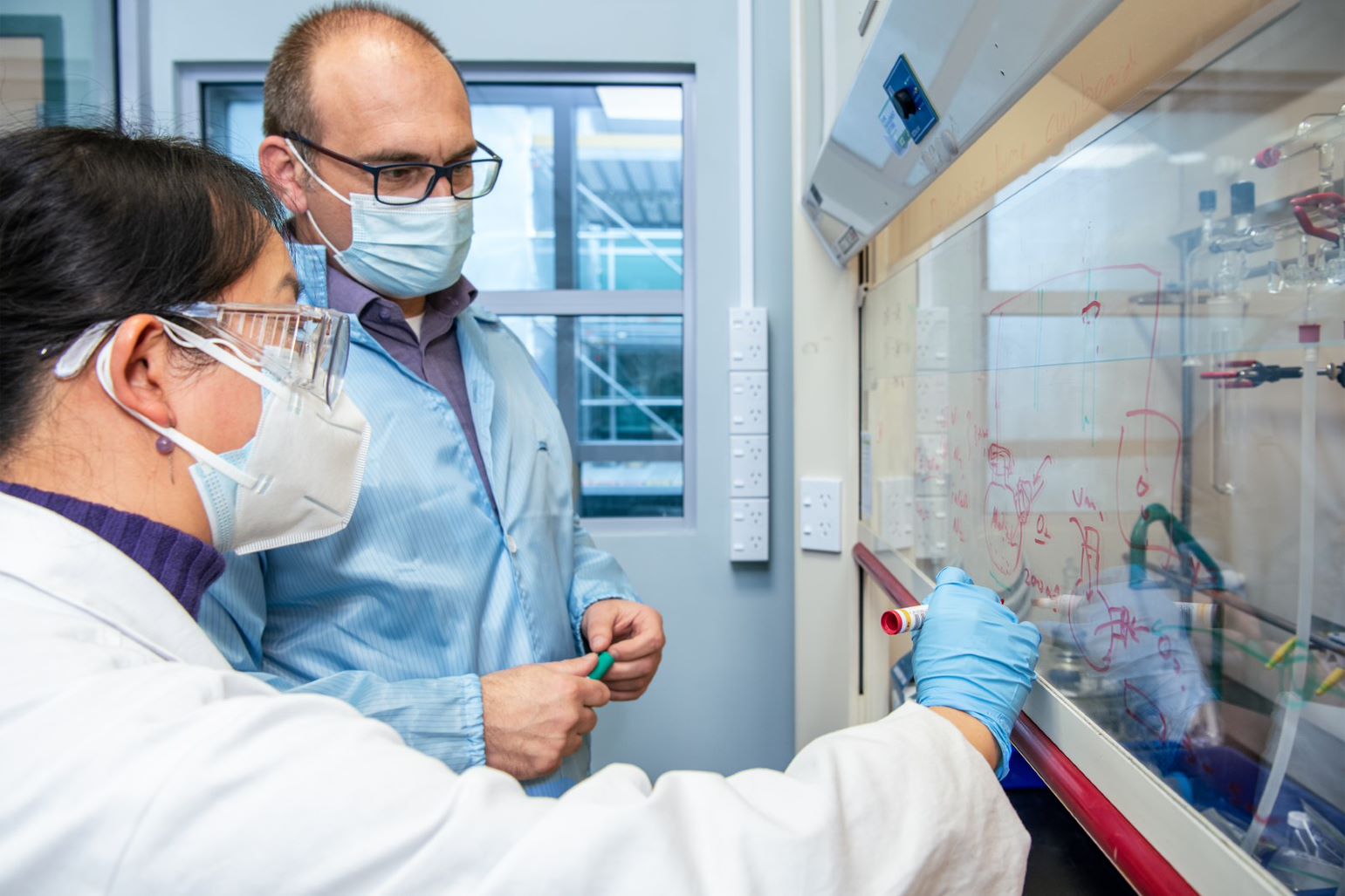New Zealand’s 100 inspired entrepreneurs
12 August, 2024
This opinion piece by Nicola Gaston first appeared on BusinessDesk (where you can read it in full).
Headlines citing the "brain drain" have been making the rounds again since Stats New Zealand confirmed that more than 81,000 NZers had left the country in the year to April – 41% more than the year before. Migration is certainly not a negative, but when most of those departing are young, educated NZers for whom the economic reality of low salaries and high cost of living in Aotearoa just doesn’t stack up against life over the ditch in Australia, it is a loss for all of us.

MacDiarmid Institute alumna Lily Clague.
In 2011, Sir Paul Callaghan said that "one hundred inspired entrepreneurs could turn this place around”
Perhaps the exact value of university education and research training is hard to convey, but it is not hard to quantify. OECD data clearly shows that for every dollar invested in university education, taxpayers receive a return of two to three times that. But exactly how that benefit plays out – how it happens, and who does the work is worth taking the time to spell out, I think.
In 2011, Sir Paul Callaghan, who founded the MacDiarmid Institute for Advanced Materials and Nanotechnology, said in a pitch for the science-led prosperity of Aotearoa that "one hundred inspired entrepreneurs could turn this place around”. His concern was that NZ was getting poorer, in real terms, relative to the rest of the world, and his hope and ambition was for us to invest in our talented young people and scientific ecosystem to change that.
In 2024, the MacDiarmid Institute will have alumni working across the motu and across industries in roles that require research training and a deep tech skill set. Founders of startups, CEOs and CSOs, research scientists and innovation experts provide concrete examples of the value that Callaghan was talking about.
Alan MacDiarmid, the Kiwi who shared the 2000 Nobel Prize in Chemistry for the discovery of conducting plastics, used to say that “science Is people”.
The MacDiarmid Institute has worked to capture the individual inspirations and motivations of 100 inspired entrepreneurs by telling their stories in their voices. These make clear the extent to which their stories are also aspirational. These are people who are working to make a positive impact.
They’re often working in clean tech or climate tech-based industries, with a clear line of sight to significantly impact Aotearoa and the world. They are also inspiring. One of our goals in creating a list (and in no way a ranked list) is to provide examples of the many varied careers that a degree in science can lead to.
We've worked to capture the individual inspirations and motivations of 100 inspired entrepreneurs by telling their stories in their voices.
Our 100 inspired, aspirational and inspiring entrepreneurs include:
- Lily Clague – who grew up on a sheep station in west Otago and is now a research technologist at Zincovery, working to decarbonise the steel and zinc industries;
- Felicia Ulstad – who moved to NZ from Sweden to do a PhD and has stayed here, working at carbon capture and utilisation startup Hot Lime Labs for five years, currently as head of R&D;
- Ratu Mataira – founder and CEO of Openstar Technologies, which aims to commercialise fusion power – a project that has been called one of the most ambitious science projects attempted in NZ.
Investing in people
Investing in our people is how we look after all of us. In this country, in the face of a sustained crisis in our universities and research sector, we need to do better to recognise that public investment is not about supporting institutions. It’s about supporting the people who our institutions enable to develop their skills, careers and aspirations.
But even more than that, we need to understand that we all benefit from providing that support. Investing in education and training is something we should all take pride in, as a vital contribution we can all make to the society we all live in. When we do, we all benefit.
As we launch this first version of our list of alumni who have taken Callaghan's mission for "inspired entrepreneurs" to heart, I’d like to make it clear that our prosperity as a nation is not something we can leave up to these individuals, no matter how inspiring they are. However, each of us has a role to play in supporting their aspirations for Aotearoa. This is a list we will continue to add to.

MacDiarmid Institute alumnus Franck Natali.


